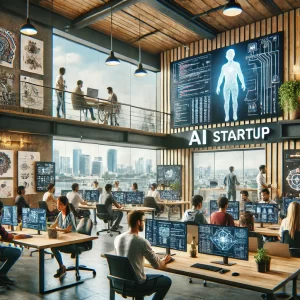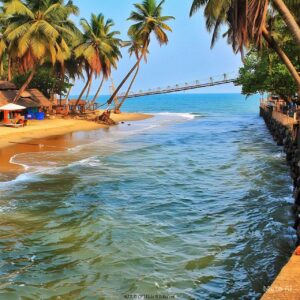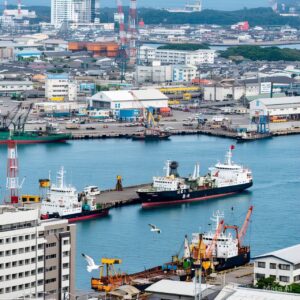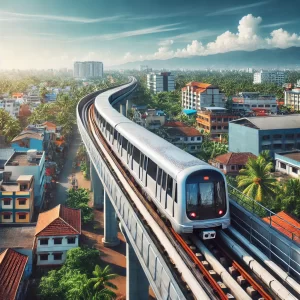Smart Traffic System Launches in Kochi – Here’s How It Works
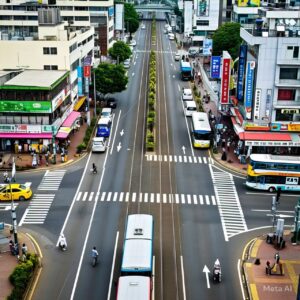
Kochi, one of Kerala’s fastest-growing metro cities, is notorious for its heavy traffic blocks, especially during peak hours. From clogged junctions to slow-moving lanes, navigating the city’s roads has become a daily challenge for commuters. But now, there’s a smart solution in sight. The Intelligent Traffic Management System (ITMS) has officially launched in Kochi, promising to revolutionize how traffic is managed in this bustling urban hub.
Launched by Chief Minister Pinarayi Vijayan via videoconference, this state-of-the-art system is a major milestone in smart city infrastructure development and aims to tackle the ever-growing congestion problem in Kochi.
What Is the Intelligent Traffic Management System (ITMS)?
The Intelligent Traffic Management System is a ₹30-crore project initiated by Cochin Smart Mission Ltd (CSML) and implemented by Keltron. Designed to use cutting-edge technology, the ITMS focuses on two primary goals:
-
Real-time traffic flow optimization
-
Traffic law enforcement through automated systems
In a metro city like Kochi, where traffic blocks have become an everyday issue, the ITMS is a much-needed intervention that blends data analytics with smart automation.
Key Features of the Smart Traffic System in Kochi
The ITMS project will be rolled out in 35 major traffic junctions across Kochi, including 21 locations with vehicle-actuated traffic signals. The system includes a comprehensive range of smart features:
1. Vehicle Actuated Signals & Area Traffic Control
These smart signals adjust in real-time based on actual traffic flow, helping to ease congestion and reduce waiting times at intersections.
2. Pelican Signals for Pedestrians
To ensure pedestrian safety, pelican signals have been introduced, allowing safer road crossings at key junctions.
3. Traffic Surveillance Cameras
High-definition cameras have been installed to monitor vehicle movement, capture violations, and support real-time decision-making.
4. Red Light Violation Detection System
Automated systems now monitor and penalize vehicles that jump red lights, contributing to better road discipline in Kochi’s crowded streets.
5. Automatic Number Plate Recognition (ANPR)
This feature helps in identifying vehicles instantly, especially those violating traffic norms, enabling faster and more accurate enforcement.
6. Automated E-Challan System
Gone are the days of manual fines. The new system automatically generates e-challans for offenses like over-speeding and signal jumping.
7. Variable Message Signage (VMS)
Electronic signboards display real-time traffic updates and alerts, guiding drivers on the best routes to avoid traffic jams in Kochi.
8. Integrated Traffic Control Centre
At the heart of ITMS is a centralized control room that manages data from all 35 junctions, enabling proactive traffic management and rapid response to emergencies.
Why Kochi Needed a Smart Traffic System
Kochi, a very busy city and a commercial hub of Kerala, has seen rapid urbanization and an increase in private vehicles. With limited road space and a growing population, heavy traffic blocks in Kochi have become a routine nightmare for office-goers, tourists, and delivery services alike.
From bottlenecks at Kaloor Junction to sluggish movement on MG Road, traditional traffic systems have failed to keep up with the city’s demands. ITMS is expected to transform the way traffic is managed by:
-
Reducing traffic congestion
-
Improving emergency response times
-
Enhancing road safety for drivers and pedestrians
-
Ensuring better enforcement of traffic rules
Official Launch and Future Plans
The smart traffic initiative was launched by Chief Minister Pinarayi Vijayan in a virtual ceremony. Along with the ITMS inauguration, CSML also unveiled its official logo and project video. Additionally, the Motor Vehicles Department (MVD) will now operate a dedicated cell within the Integrated Traffic Control Centre to monitor violations and streamline operations.
Going forward, similar systems could be expanded to other cities in Kerala, depending on the success and efficiency of the model in Kochi.
How Will This Benefit Commuters in Kochi?
If you’re someone who dreads the long queues and frequent halts on Kochi’s roads, the smart traffic system offers several benefits:
-
Shorter travel times with optimized signals
-
Reduced fuel consumption due to fewer stops and idling
-
Instant alerts and route suggestions through digital signboards
-
Greater transparency in traffic enforcement
-
Improved driving culture with stricter rule enforcement
Final Thoughts
The launch of the Smart Traffic System in Kochi marks a major leap toward modern, technology-driven urban mobility solutions. As one of Kerala’s busiest metro cities, Kochi urgently needed a solution to combat frequent traffic blocks and poor road discipline, and ITMS appears to be the answer.
With a focus on sustainability, safety, and smart enforcement, this initiative is set to make daily commuting in Kochi smoother, faster, and more reliable.

